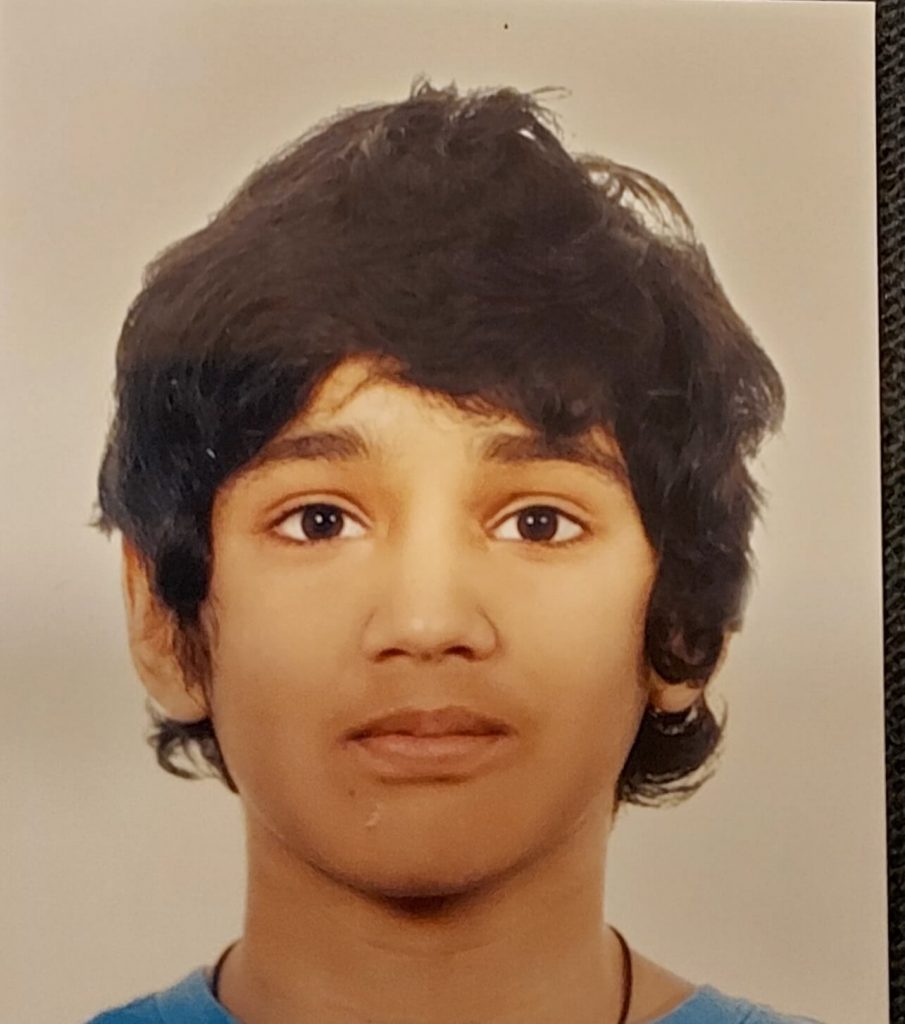Our Schools
Grandparents Talk for Montessori
To address some questions and curiosities of our children, we organized an interactive session with the grandparents of a student in Montessori.
Mrs. Presteena Pereira and Mr. Josy Pereira shared childhood stories about their schooling days, the fun they had playing outdoor games with friends and the excitement they had while listening to the radio (one of the very few sources of entertainment, as they mentioned).
They encouraged students to learn, experiment, and participate as much as possible in school as well as respect their teachers and fellow mates.
Our students eagerly listened to all their stories and asked them questions like how they played if they didn’t have cell phones, computers or any sort of electronic gadgets.
 Our students presented a plant as a token of affection to our guests who took time off to visit the school and share their experiences with the little ones.
Our students presented a plant as a token of affection to our guests who took time off to visit the school and share their experiences with the little ones.
More stories from Ekya:
Expert talk by Ms. Nandini Yadalam.

More stories from Ekya:
Dinner Table Conversation by Ms. Shilpa Arun
"Family Time"
Family time is less common now in the era of gadgets and digital distractions. The age-old ritual of family dinners is possibly the best way to get every member of the family together. As the saying goes "A Family that eats together, stays together", but the merits of 'Family Dinner' are manifold. It provides a sense of belonging and caring among all members, promotes healthy eating habits, relieves stress, offers a 'good night's sleep', and more than anything it brings happiness and encourages family bonding. Here is an interesting blog by Ms. Shilpa Arun, parent of Anika Arun Bharadhwaj, studying in Grade-2 in Ekya School JP Nagar, on "Dinner Table Conversation," discussing the purpose, challenges and positive outcomes of reviving the 'Dinner Table Ritual.'Dinner Table Conversation
- This Dinner time organizes my family, settles us, regularly bringing all members together, contributing to the physical, mental and social well-being. (Yes, after all the complaining from kids about switching off the TV and from adults about keeping phones away, finally ends, this really happens, we are at peace when the food is served!)
- We now eat together from a single menu, elders and kids alike. (Well, there are days when some pickle will substitute a sabzi ‘too gooey’ for the kids or we adults down a rather bland sabzi!) 8 out of 10 days, the single menu works.
- New dishes are welcomed. Simple traditional dishes make us share a few more stories. (Worth all the Effort)
- All the rainbow veggies are included for dinner. We are eating more of them (Good for us parents who are growing on our sides.)
- It is often said, we should not talk while eating, but I promise you, dinners are eaten faster during this little ritual. (we end up spending more time talking after dinner, while my ‘mother-hawk's eyes zeroed-in often at the clock, to start the bedtime routine!)
- The kids help in setting up and cleaning the table! Good for them! (It takes half an hour more when kids do this, my legs and back rest and my throat hurts!)
- As parents, with all our experience and wisdom (Rather limited & ancient, I have come to understand!!) we find that small window of chance to include useful life-skills into (ridiculously silly) stories and talk about them (without laughing ourselves) although many stories are met with a pair of suspicious eyes asking us “so, is this a story???” So what? I guess the ‘important bits’ of the stories are put out there! Honestly, it is the children who teach us better.
- We learn to work together, delegate a few chores, take responsibility, to negotiate, while prepping & wrapping dinner, together. (I love delegating, though!!)
- We plan for the weekend, distribute chores, make lists, set reminders for more to do, all while cleaning up the table. (of course, this will mean more driving and waking up early during weekends.)
- Somehow, we learned to laugh more, be more goofy and loosen up. I am glad we are learning this well!! (We do laugh a lot!!)
- We learn to share what did not work for us at school and at the office, and how we can do something different to work it! (Including how some dishes do not work well for them too!!)
- About Money. It is a life skill which in my opinion must be taught to children like they understand the concepts of brushing teeth & combing hair! We all know by now, is not ‘the money-making’ that is important, rather ‘managing the money’ is the life skill kids need to master.
- We learn to be patient and wait as everyone will finish those last few spoons! (Very important for parents!)
- We learn to help each other at the table by suggesting to try what combinations are yummy. (yes sometimes, we adults taste Obbatu with tomato sauce & other times the kids taste vegetable salad with lemon Tahini dressing!! In the end, we finish what we have on our plates, despite the yumminess!)
- I can vouch for this since we started the dinner ritual, we have learned to prioritize good food & family time with kids over other interesting (now ex) activities. (checking office mail, browsing news, pic, quotes on social media, silently clicking on emojis to express our opinions! Or even watching ‘The Mummy’ for the 10th time)
- We have nearly stopped eating processed food, during that one important mealtime! (Ice-creams and chocolates are STRICTLY NOT included in the bad food list, at our home!)
A brief profile of Ms. Shilpa Arun:
 Ms. Shilpa Arun is a Chartered Accountant, with about 15 years of work experience in corporate finance, auditing & compliance. She loves practicing yoga, listening to music, reading and spending time with my family. She strongly aspires to learn something new every few years.
Ms. Shilpa Arun is a Chartered Accountant, with about 15 years of work experience in corporate finance, auditing & compliance. She loves practicing yoga, listening to music, reading and spending time with my family. She strongly aspires to learn something new every few years.

















Leave a reply